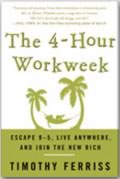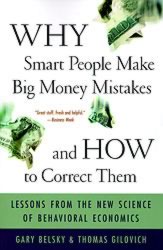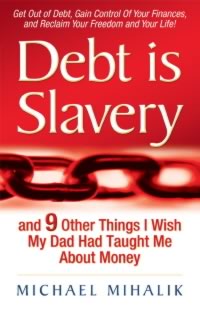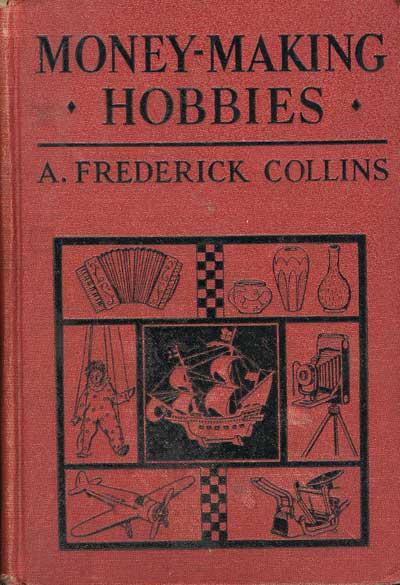How to Read a Personal Finance Book
I read a lot of personal finance books. I do this because I learn best by reading, and because I like to review the available literature for readers of this site. When I recommend a book, it's because I think there's something valuable there, maybe not for everybody, but for most people. Books are only valuable, though, if you are willing to do your part.
Be an active reader
You, as the reader, must be an active participant. You must question what you read. You must try to discern the author's motives, and decide how those might cloud the advice she gives. 
It does no good to read Dave Ramsey's The Total Money Makeover, for example, if you're only going to read it. For it to have value, you must apply its principles. Not all of the principles, but those appropriate for your situation. As always, do what works for you.
The 4-Hour Workweek review and summary
When I picked up The 4-Hour Workweek, I was worried it was some sort of "get rich quick" book. The first few pages didn't do much to change my mind.  The author, Timothy Ferriss, makes a lot of bold claims, such as: "How do you create a hands-off business that generates $80,000 per month with no management? It's all here."
The author, Timothy Ferriss, makes a lot of bold claims, such as: "How do you create a hands-off business that generates $80,000 per month with no management? It's all here."
But something happened during the first few chapters. When I read a book, I use small sticky notes to mark interesting passages. After the first 100 pages of The 4-Hour Workweek, the book was thick with stickies. By the time I was finished, I had used an entire pad!
Ferriss does make a lot of bold promises, and some of the details along the way do read like the confessions of a get-rich-quick scammer. But I believe that an intelligent reader can easily extract a wealth of useful ideas from the book. For me, it's a keeper. I've read it three times already, and will probably read it again before the end of the year.
Why Smart People Make Big Money Mistakes (and How to Correct Them)
Money is more about mind than it is about math — that’s one of the key tenets of this site. People make financial decisions based not on mathematical ideals, but on emotion.  There’s actually a branch of economics called behavioral finance devoted exclusively to this phenomenon, exploring the interplay between economic theory and psychological reality.
There’s actually a branch of economics called behavioral finance devoted exclusively to this phenomenon, exploring the interplay between economic theory and psychological reality.
On a recent train ride across Ireland, I read a book on behavioral economics called Why Smart People Make Big Money Mistakes (and How to Fix Them), which was published in 1999 by Gary Belsky, a former writer at Money magazine, and Thomas Gilovich, a psychology professor at Cornell University. In this short book, Belsky and Gilovich catalog a menagerie of mental mistakes that cause people to spend more than they should. What might have been a boring topic becomes fascinating thanks to an engaging style and plenty of anecdotes and examples. This book covers a couple dozen psychological barriers to wealth. I’m going to highlight just a few.
For example, do you treat “found money” — gifts from grandparents, tax refunds — differently than you do the money you earn from working? If so, you’re guilty of mental accounting, and it’s probably costing you. If you’re tempted to take money out of stocks when the overall market drops, you suffer from loss aversion, and overcoming it will allow you to earn more from your investments.
One  The real trick is that I want it to be a short book — no quizzes, no jargon, no padding — and that's not something that appeals to most publishers. Unfortunately (or perhaps fortunately), Michael Mihalik has already written a book similar to the one I have in mind!
The real trick is that I want it to be a short book — no quizzes, no jargon, no padding — and that's not something that appeals to most publishers. Unfortunately (or perhaps fortunately), Michael Mihalik has already written a book similar to the one I have in mind!
The body of Debt is Slavery (and 9 Other Things I Wish My Dad Had Taught Me About Money) is just 88 pages packed with sensible advice about money. Like me, Mihalik made some dumb financial choices when he was young, and he spent years struggling to recover from his mistakes. Debt is Slavery is the distillation of all that he has learned about personal finance. If you've been reading Get Rich Slowly for a while, Mihalik's lessons won't be new, but he does an excellent job of presenting each point.
There is no secret: The myth of the Law of Attraction
This review was written several weeks ago, but I shelved it for fear of making anyone cranky. Things have changed. The Law of Attraction cultists are out in force, and they're gunking up my site with comment spam. Now I'm having my say — I'm fighting back.
The Secret is a best-selling motivational book (and DVD) published last fall.  I didn't hear about it for a long time because I live in an intentional media vacuum. After a couple people recommended it, I read it. Twice. Not because I liked it, but because I can't believe that people still fall for this crap.
I didn't hear about it for a long time because I live in an intentional media vacuum. After a couple people recommended it, I read it. Twice. Not because I liked it, but because I can't believe that people still fall for this crap.
What is the "Secret" of The Secret?
The "secret" is the Law of Attraction, which is not actually a law of anything. The Law of Attraction states that your life is a result of the things you think about. From a psychological perspective, this notion has some merit, and if the book explored the existing literature and research on the subject, I might not be writing this review. Continue reading...
Book Review: Time is Money
One of the most puzzling things about money is knowing where to begin. You get out of college and suddenly find yourself in the real world, with a job, with rent, with student loans, and wonder how you're going to make ends meet, let alone save for retirement. Retirement seems so far away. It's easy to just forget about it.
![]() Ignoring retirement could be one of the biggest financial mistakes you'll ever make. Compound returns favor the young. Time is money. Invest now and your 40-year-old self will be grateful. But where do you start?
Ignoring retirement could be one of the biggest financial mistakes you'll ever make. Compound returns favor the young. Time is money. Invest now and your 40-year-old self will be grateful. But where do you start?
Frances Leonard's 1995 book, Time is Money, is an excellent introduction to retirement for people in their twenties and early thirties. Leonard preaches the important message: start now.
Book review: Acres of Diamonds
One recurring theme of personal finance books is that it's easier to accumulate wealth by working for yourself than by working for others.  Many have heard this maxim, but few have heeded it. Some want to, but don't know how to begin.
Many have heard this maxim, but few have heeded it. Some want to, but don't know how to begin.
A century ago, Russell Conwell was famous for his traveling lecture in which he encouraged listeners to find the "acres of diamonds" in their own backyards. Conwell was born in Massachusetts in 1843. During the Civil War, he served as a captain in the Union army. He studied law, but ultimately became a Baptist minister and a popular public speaker. "Acres of Diamonds" was his most famous talk. (He delivered this lecture over 6000 times!) Conwell also founded Temple University.
Conwell was one of the original motivational speakers.
The ultimate round-up collection of personal finance books

Reading books on investing money is a great way to learn more about what you should do at each point in your financial journey. In some respects, it doesn't really matter where you are in your journey because, no matter what you need help with, there's a book that covers it.
Deciding which book to read when, though, can be a bit of a challenge. So we created this huge collection of personal finance books to help with that. Here's how it works:
10 Ways to Save Money on Books
I used to spend thousands of dollars a year on books, most of which I never read. Recently I've begun to trim my book spending. I spent nearly $3000 on books in 2003, but that number dropped to $700 last year. How did I do it? Through self-discipline and some common sense tricks.
1. Avoid new releases
New releases sell at a premium. Sometimes you can get them cheap at Costco or Amazon. It's best to avoid them completely. Put them on hold at the library. If you're tempted to buy a newly-released book, ask yourself: "Why do I need to own this now? Can I wait?"
2. Read reviews
Reviews help separate the wheat from the chaff. It's a terrible feeling to spend $25 on a book only to discover it's awful. Amazon is an excellent source for reader opinion. I also like Metacritic and The New Yorker. Find a source that you trust, and rely upon it to screen books.
Money-Making Hobbies (from 1938)
Note: For a modern look at this topic, check out six tips for money-making hobbies.
What would Get Rich Slowly have been like if it were produced seventy years ago? Maybe something like this. (Or maybe not.) All text and illustrations from Money-Making Hobbies by A. Frederick Collins, published 1938 by D. Appleton-Century Company. I am not making this up. Enjoy!
